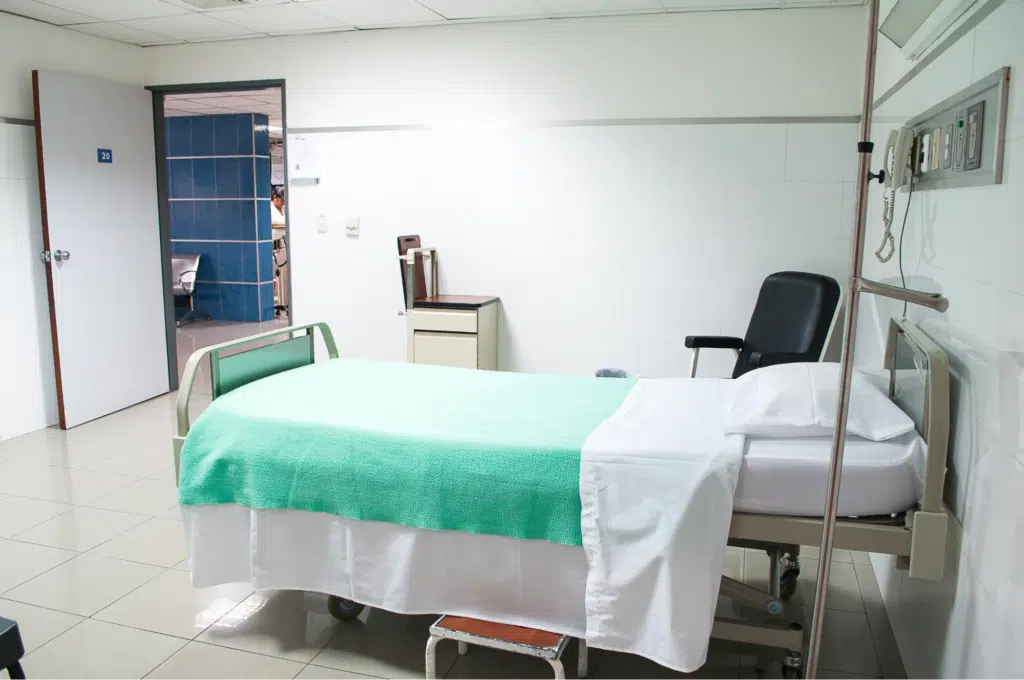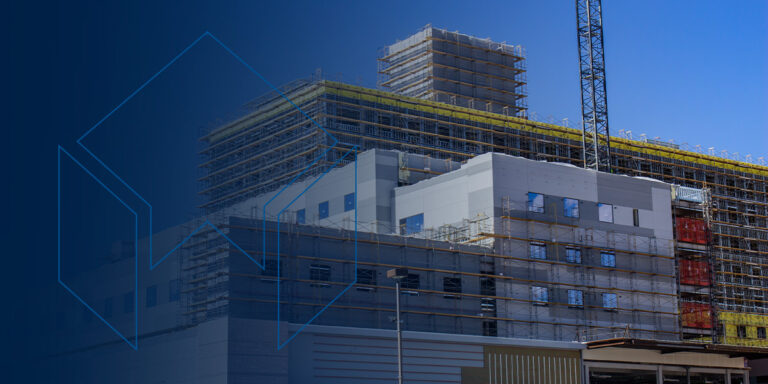Updated 12/6/2024
Hospitals need to be able to operate during any renovation or new construction project, but the sterility of the environment must be unaffected by whatever activities are ongoing. If not, there is a risk of infection to already weakened immune systems and those trying to heal.
To address this, the Infection Control Risk Assessment is used to measure the impact the construction may have on healthcare facilities. Alongside these measures, however, stands one resource that is incredibly important: ICRA barriers
What is ICRA?
ICRA stands for Infection Control Risk Assessment and is a process that analyzes proposed construction projects within healthcare facilities to determine the level of risk of biological contaminants to patients and staff. The typical risks that ICRA assesses are threats to water supply and air quality from construction dust and debris.
Types of ICRA Classes
- Type A: Minor tasks like electrical finishing, plumbing leaks or installation, and painting projects.
- Type B: Short-term tasks with low amounts of dust, such as installing light fixtures, computer cables, and smoke detectors.
- Type C: Moderate to high amounts of debris, including installing new temporary wall solutions, replacing floors, and large-scale plumbing.
- Type D: Major construction projects such as patient room renovations, installing new HVAC systems, and constructing new wings of a facility.
For a detailed understanding of the determinations and how to finalize an ICRA permit, see ICRA 2.0.
ICRA Barriers and ICRA Barrier Requirements

The main concern surrounding ICRA is the introduction of hazardous material to a sterile environment. Therefore, construction teams need to consider how much waste, dust, or debris is going to be created during the construction process. Another thing to consider is how the teams are going to keep it away from where it should be.
The traditional method of dealing with dust and debris in hospital construction is to erect temporary walls that help contain dust and make the cleanup process easier. These temporary walls are legitimate walls made of studs and drywall, which are then torn down and discarded when the work is complete.
While this may work for some construction projects (although not cost-effective), they are not always acceptable for ICRA barrier requirements. The solution then is to rely on more ICRA barriers that are manufactured to be compliant up to the most severe ICRA determination, ICRA Class V.
Using SwiftWall® Temporary Wall Systems as ICRA Barriers
SwiftWall® offers the best in reusable and modular temporary wall systems, helping construction teams optimize their temp wall processes for easier-to-install (up to 5x faster), superior systems from the traditional stud and drywall solution. When it comes to construction in healthcare facilities, the SwiftWall® Flex system is designed specifically to meet the ICRA Class V rating to ensure sterility in sensitive environments.
SwiftWall® Flex features include the capability for airtight seals for negative airflow, non-hygroscopic, antimicrobial surface finish, and ASTM E-84 Class A and C flame spread ratings. While capable of meeting the stringent standards of ICRA Class V, SwiftWall® Flex also allows for other comforts, such as a high STC rating to keep the noisiness of construction work separate from ongoing healthcare activity. The temporary wall system is easy to install and can be performed by even a lone employee, is stronger than drywall, can host graphics and other signage on the panels, and can be readily taken down and reused many times over as phases complete or for future projects.
Swiftwall®:Providing ICRA Barriers and Meeting ICRA Requirements

At SwiftWall®, we’re leading the way in using temporary wall systems to meet the most stringent ICRA barrier requirements.
Numerous clients undergoing work in the healthcare space have relied upon SwiftWall® Flex to reduce headaches and maintain a sterile, safe, and comfortable environment for patients who need to heal.
For more information about SwiftWall® Flex and how our ICRA Class V-certified temporary wall systems can help optimize your healthcare facility construction project, reach out to our experts today.


